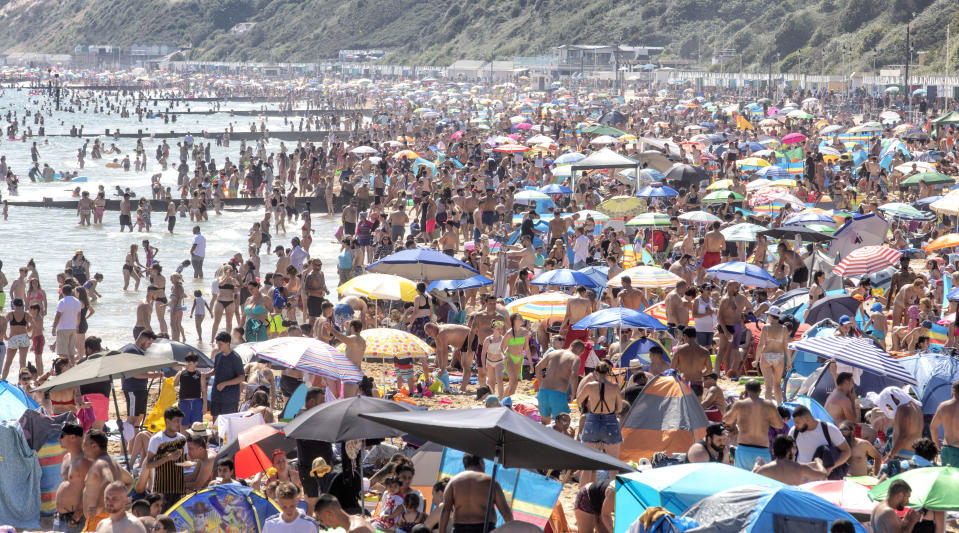Coastal towns in England and Wales had fewer coronavirus deaths

For many weeks during the height of summer, it appeared that the UK’s coastal towns were likely to be at the sharp end of the battle against coronavirus.
As police and councils urged sunseekers to steer clear of their beaches, there were fears that the masses of people could spread the virus - including among the communities they were congregating in.
But recent data released by the Office for National Statistics (ONS) suggests that coastal towns in England and Wales experienced far fewer coronavirus deaths proportionately than inland towns.
The study tracked the rate of COVID deaths among the 5.3 million people who live in coastal settlements in the two countries.
Up to 18 September they found mortality rates were far lower for large seaside towns compared to large non-coastal towns, 63.0 per 100,000 people compared with 102.2 per 100,000.
And in smaller coastal towns the death rate stood at 57.3 per 100,000, far lower than comparable small inland towns where 84.4 people per 100,000 died from the virus.


One of the key factors that determines an individual’s risk to dying from the virus is age, with older people much more likely to die throughout the pandemic.
But scientists believe that the lower mortality rates could be partially due to the older populations found in such towns.
Dr Konstantin Blyuss, a Reader in Mathematics at the University of Sussex, said that the age breakdown of such towns could be playing a part, with an older population less likely to find themselves in large groups such as travelling to and from work.
“With coastal towns having, on average, older population, who may not be doing so much commuting, combined with a smaller proportion of younger people, who are generally socialising more, this all results in reducing levels of people mixing for extended periods of times in close proximity of each other,” he said.
Watch: Frailty ‘a risk factor for dying with coronavirus’
Read more: The 20 places in England with the highest COVID infection rates
“That could be one of the reasons why coastal towns in England and Wales have so far experienced smaller rates of COVID-19 deaths.”
Experts noted that the lower death rate would likely come as a relief to coastal residents who saw large crowds flock to the beaches as the lockdown was eased over the summer.
Dr Clarke, an Associate Professor of Cellular Microbiology at the University of Reading, said: “This looks like positive news for people living by the coast who may have been worried that stay-at-home holidaymakers would bring extra Covid19 deaths to their more elderly resident populations.
“These data show that, on the whole, deaths have been lower for people living by the sea than elsewhere.
“Older retirees with more indicators of deprivation, living in individual homes and less likely to be going out are presumably much better insulated against Covid19 infection and death, than their less deprived metropolitan counterparts, for whom close contact with other people, including carriers of the virus, will be harder to avoid.”
Watch: Beach-goers divided over social distancing
Coronavirus: what happened today
Click here to sign up to the latest news and information with our daily Catch-up newsletter

 Yahoo News
Yahoo News 
